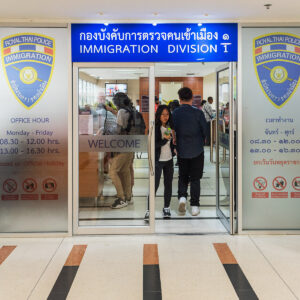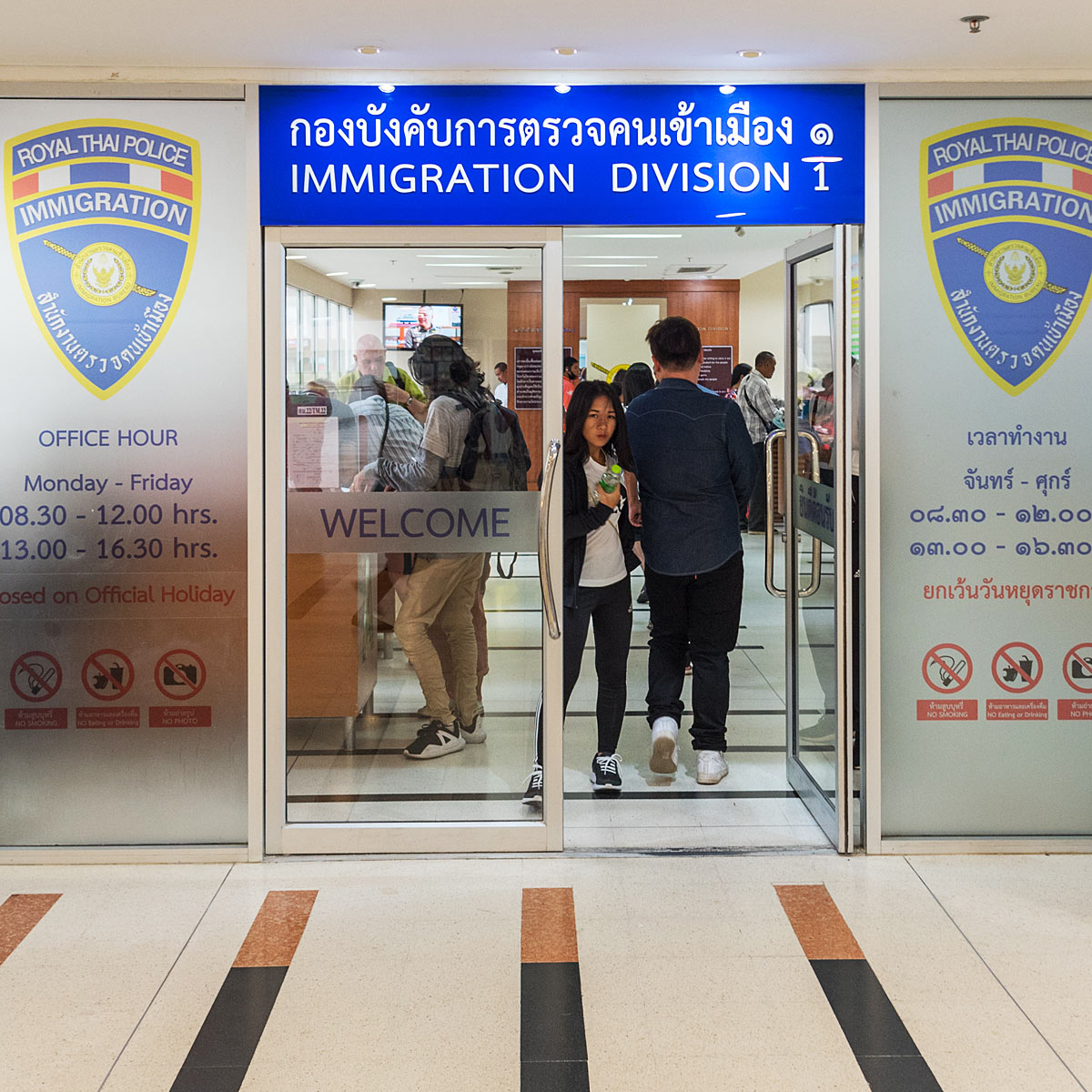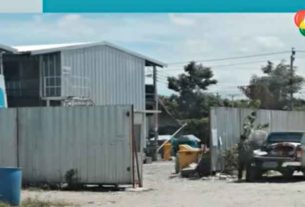 Work permits and Thailand labour law – A foreign worker’s compliance guide
Work permits and Thailand labour law – A foreign worker’s compliance guide
18 Jan 2024
Navigating the complexities of work permits and labour laws in a foreign country can be a daunting task for expatriates and international companies. With Thailand being a popular destination for foreign workers, understanding its specific legal requirements is crucial. This article aims to provide a guide by simplifying and explaining the essential aspects of work permits and Thailand Labour Law, providing a reliable resource for expatriates, international companies, and HR departments.
In the context of Thai labour law, compliance is not only a legal obligation but a necessity to avoid significant financial and legal repercussions. A pertinent example of the consequences of non-compliance can be seen in the United States, where the Labour Department’s Wage and Hour Division Investigations revealed that more than 16,000 employers failed to pay over $20.3 million in back wages. Such cases highlight the importance of adhering strictly to labour laws to prevent similar costly legal issues.
Laws Overview of Thailand Labour Law
Navigating the legal landscape of work permits and labour laws in Thailand is critical for expatriates, international companies, and HR departments. This guide offers a comprehensive overview of Thailand’s labour laws, focusing on their application to foreign workers, and provides essential information to ensure compliance and avoid legal pitfalls.
General Principles
Thailand Labour Law, governed by the Labour Protection Act B.E. 2541 (1998), sets out the fundamental principles and standards for employment in Thailand. This law applies to both local and foreign workers, ensuring fair treatment, safety, and proper working conditions.
Here are the key aspects of the law:
Working Hours and Holidays: Typically, the working hours should not exceed 8 hours per day or 48 hours a week. Employees are entitled to at least one day off per week and 13 public holidays per year.
Minimum Wage and Overtime: Thailand enforces a minimum wage policy that varies according to the respective provinces. Overtime payment is mandatory for work exceeding the standard working hours.
Employee Rights and Welfare: This includes rights to fair treatment, protection from discrimination, and access to welfare funds.
Criteria and Requirements for Obtaining a Work Permit in Thailand
Foreign nationals aiming to work in Thailand must navigate a set of criteria and requirements to legally obtain a work permit. These criteria are designed to ensure that foreign workers are suitable for their intended roles and comply with Thai employment standards.
Key Eligibility Criteria
There are certain criteria that should be assessed for obtaining a work permit in Thailand, and they are as follows:
Valid Non-Immigrant Visa: Before applying for a work permit, one must have a valid non-immigrant visa, typically a Non-Immigrant Visa “B.” This visa should be obtained from a Thai embassy or consulate, either in the applicant’s home country or current country of residence.
Job Offer from a Thai Employer: A confirmed job offer from a registered Thai company is essential. The offer should clearly state the position, the nature of the work, and other employment details.
Qualifications and Experience: Applicants must possess the necessary qualifications, skills, and experience relevant to the job role. This usually includes educational certificates, professional qualifications, and job references or a detailed employment history.
Industry-Specific Requirements
Apart from the general criteria, certain industries are subject to specific requirements or restrictions. These are governed by the Working of Alien Act, B.E. 2551 (2008), and the Foreign Business Act, B.E. 2542 (1999) which provides additional guidelines for employment in particular sectors.
Professional and Skill Requirements: Some professions may require specific certifications or licenses. For example, roles in engineering, healthcare, or education often have strict professional requirements.Quotas and Nationality Restrictions: There are restrictions on the number of foreign workers that a company can employ, often based on the size of the company and the Thai to foreign employee ratio. Additionally, certain industries might have limitations based on nationality, in alignment with international agreements or national policies.
Restricted Occupations: The Thai government restricts certain occupations exclusively for Thai nationals. These typically include labour-intensive roles, jobs in agriculture, handicrafts, or retail positions that do not require specialised skills.
Understanding and meeting these criteria and requirements are crucial for foreign nationals seeking employment in Thailand. Compliance with these regulations ensures legal work status and contributes to a smooth, professional journey within the country.
Application Process for Work Permits
Navigating the application process for work permits in Thailand requires an understanding of the country’s employment law. This process is a critical step for foreign workers to legally work in Thailand. It involves obtaining the appropriate visa, followed by the submission of a detailed application to the Thai authorities. Adhering to these steps ensures compliance with Thai employment law and smoothens the transition into the Thai workforce.
Step-by-Step Guide
Let this guide you on the process of work permit application:
Obtain Pre Approval: To facilitate the efficient processing of your visa application, it is crucial that your prospective Thai employer initiates the submission of the pre-approval work permit letter (WP.3) from the Ministry of Labour. This step is essential to enable the Thai embassy or consulate to proceed with granting you the appropriate visa.
Obtain a Non-Immigrant Visa: The next step is to secure a non-immigrant visa, typically a Non-Immigrant Visa “B” (Business Visa), from a Thai embassy or consulate in your home country or current residence.
Submit Work Permit Application: Upon arrival in Thailand or in collaboration with your prospective Thai employer, initiate the process of submitting a work permit application to the Ministry of Labour. Employers typically play a key role in facilitating this step by furnishing essential information and providing necessary support.
Necessary Documentation
To successfully navigate this process, the following documents are typically required:
Passport with Valid Non-Immigrant Visa: Ensure your passport is valid for at least another six months and contains the appropriate visa.
Employment Offer or Contract: A formal job offer or contract from a Thai employer, stating position, job description, salary/compensation, and other employment terms.
Educational Certificates and Job References: Proof of your qualifications and experience relevant to the job role.
Medical Certificate: A health certificate from a recognised medical institution, typically not exceeding six months from the date it is granted.
By methodically following these steps and preparing the necessary documentation, foreign workers can effectively obtain their work permits, aligning with Thailand’s employment law and regulations.
Essential Aspects for Compliance
In addition to understanding the basic requirements of work permits, there are several key areas that foreign workers and their employers in Thailand need to focus on. This section covers the critical roles of employers in the work permit process, specific visa requirements, the importance of adhering to Thai labour laws, the process for renewing or terminating work permits, available resources and support for foreign workers, and keeping abreast of recent changes and future trends in legislation. Each of these aspects has a critical role in ensuring a smooth and legally compliant experience for expatriates working in Thailand.
– Role of Employers in the Work Permit Process
Thai employers are essential in the work permit process, assisting foreign employees in obtaining and maintaining these permits in line with the Working of Alien Act. They are also responsible for keeping accurate employment records and ensuring employees work within their designated job scopes.
– Visa Requirements and Types
Foreign workers typically require a Non-Immigrant Visa “B” (Business Visa) aligned with their work permit. The application process includes submitting an employment contract, employer documents, and a letter of employment.
– Compliance with Thai Labour Laws
Adhering to the Labour Protection Act and related laws is mandatory for both employers and foreign workers to avoid legal issues. Additionally, understanding and integrating into Thai workplace culture is crucial for smooth, professional relationships and compliance.
– Renewal and Termination of Work Permits
Work permits need to be renewed before expiration by submitting updated documents to the Ministry of Labour. If there’s a job change or termination, the existing work permit becomes invalid, necessitating a new application.
– Resources and Support for Foreign Workers
Foreign workers have access to resources like legal aid and expatriate support groups. HR departments can benefit from consultancy services and legal assistance for navigating work permits and labour law compliance.
– Recent Changes and Future Trends
Staying updated with regular changes in labour laws and work permit regulations is vital. Understanding these changes helps foreign workers and employers adapt their employment and compliance strategies accordingly.
Legal Consequences of Non-Compliance
Adhering to Thailand’s employment policy and regulations is crucial for foreign workers and their employers. Non-compliance with these laws can lead to serious legal repercussions, significantly impacting the professional and personal lives of those involved.
Penalties and Legal Implications:
1. Financial Penalties and Fines
According to the Thai Labour Protection Act B.E. 2541 (1998) and the Working of Alien Act, B.E. 2551 (2008), violations of labour laws can result in substantial fines. These fines vary depending on the nature and severity of the violation, such as underpayment of wages, failure to adhere to working hour regulations, or neglecting workplace safety standards.
2. Deportation and Blacklisting
More severe breaches, especially those involving work permit violations, illegal employment, or non-compliance with immigration regulations, can lead to deportation under the Immigration Act, B.E. 2522 (1979). Furthermore, individuals may be blacklisted, preventing them from re-entering Thailand for employment purposes. This can occur in cases where foreign workers are employed without the proper work permit or if they engage in work not explicitly approved in their work permit.
3. Criminal Charges
In some instances, non-compliance with Thailand’s employment laws can lead to criminal charges. This is particularly true for offenses viewed as exploitative or harmful to Thai nationals or their economy.
Thailand’s employment policy is designed to protect the rights and welfare of both local and foreign workers while maintaining a fair and competitive job market. It’s imperative for foreign workers and their employers to understand and abide by these laws to avoid legal complications and ensure a productive and lawful employment experience in Thailand.
Key Takeaways
Understanding and adhering to Thailand’s labour laws and work permit requirements is essential for foreign workers and their employers to ensure a legal and productive working experience. Compliance with these regulations facilitates a smooth integration into the Thai workforce and helps maintain a supportive work environment. Employers have a key role in assisting with work permits and upholding Thailand’s employment policy, while foreign workers must stay informed about labour law amendments and adapt to the cultural nuances of the Thai workplace. By meeting these responsibilities, both parties can avoid legal issues such as fines or deportation and contribute to an effective working relationship. This commitment to legal compliance not only benefits individual workers and employers but also reinforces Thailand’s status as an appealing destination for international talent and business.
About the authors: Thanyaluck Thongrompo, Partner and Sikarin Sripaoraya, Associate at Kudun and Partners https://www.kap.co.th/
Source: https://www.bangkokpost.com/life/social-and-lifestyle/2726525/work-permits-and-thailand-labour-law-a-foreign-workers-compliance-guide


